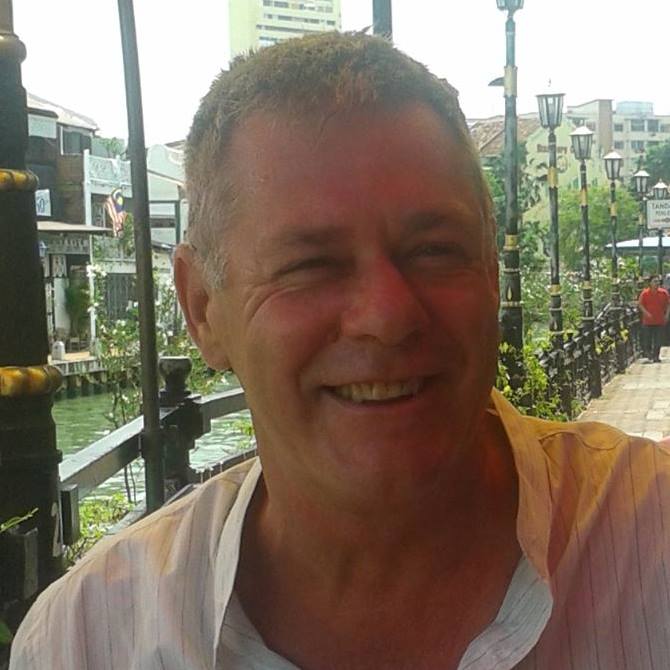Disability Practitioner in the Spotlight
Dallas Dunn

Strength through collaboration
As a Disability Advisor at the University of South Australia Dallas Dunn knows the value of working collaboratively within his institution, with his state colleagues and within the broader Tertiary Education Disability Network. He finds that regular meetings with others is a great way to share knowledge, extend practices and approaches, and generate new ideas.
Dallas brings to his role an invaluable depth and breadth of experience in the disability sector. This has included coordinating the learning and development team at Minda, a large South Australian Intellectual Disability Service Provider, and with a VET College for Aboriginal students. In these positions he delivered Certificate III and IV in Disability. His move to Disability Practitioner at the University of South Australia enabled him to leverage off his current skills into this specific area. ”There are more expectations on students to be self-directed learning”.
The University of South Australia comprises four metropolitan and two regional campuses, and has five Disability Practitioners. As well as this team meeting fortnightly, Dallas is able to join with Disability Advisers from other SA universities and TAFEs on a monthly basis. “We have a really strong SA team – small is good sometimes”. The South Australian Network – DTEN (Disability Tertiary Education Network), that also includes the state NDCOs is a great vehicle for professional development, information exchange, and hear from guest speakers. “We are able to talk through tricky issues that arise in our work with students and all learn from the situation”.
The last three decades have been an interesting time to work in the disability sector, and Dallas has been pleased to see many positive changes in attitudes within education institutions and the community in general. “When I was a student at Uni you wouldn’t have dared asked for an extension, now it is good to see some flexibility in academia to accommodate different needs at certain times”.
However Dallas regards mental health as an area that has low understanding within the tertiary sector. He also supports many students with significant mental health conditions who are undertaking Open University Australia courses. These students can be difficult to reach by phone or email.
He therefore delivers Mental Health First Aid Training to staff twice a year, as well as providing shorter half day sessions mental health awareness sessions. “These shorter sessions are easier for academics to attend and focus on what is mental health, what are the impacts on study and how the University can respond”.
“It is important to remind staff that it should not be questioned how mental health or any other disability could impact on professional life after graduation, but need to focus on impact on studies”.
Dallas finds the job rewarding when he is able to assist students move around and under barriers to succeed at their studies. “Some will come to me thinking it will be all too difficult”. And then after some assistance to hear a student say ‘WOW these Access Plans are great, I didn’t think this could happen’ and to see their achievements brings a lot of satisfaction.
One highlight for Dallas was working with a student with no vision. He was inspired by her determination and independence working in a text rich course. She had a heightened self-awareness of the available technologies that would assist her. She succeeded in her undergraduate degree and went to achieve Masters.
Being part of the organising committee for the South Australian Pathways Conference also provided a great sense of achievement and satisfaction. Although a lot of hard work, it provided a further opportunity to work collegially with his state peers. He was proud to have delivered a Conference that included a range of inspiring keynote speakers, some of whom were outside the traditional academia field.
The other Pathways Conference he has attended is the one held in Brisbane. However he was one of the presenters there, and has therefore “kept himself tidy” at both Pathways.
Dallas knows that sometimes it is not always possible to assist students achieve academic success. “Some students just aren’t well enough to be studying at this time of their life”. In those situations success is assisting the student to withdraw and link in with other appropriate activities or services.
Dallas would advise new Disability Practitioners to enjoy the job, enjoy the busy times, and know that you have to think on your feet at times. He also would encourage anyone not to be a ‘luddite’ like himself, and to try and keep up-to-date with Assistive Technology. “It can be overwhelming but at least you need to investigate it on an on-needs basis”.
Asking questions of other practitioners through direct contact and through the Austed list has been a great source of support and advice.
One underlying principle that drives his work is find ways to promote independence, doing with – not for. This can vary at different times and for different students, but the question should always be there in your approach. “Sometimes it could be quicker doing it for someone but the principle is important”. “I give students the information, check that they can follow it up for themselves, and mostly they do”.
He would like to see a stronger commitment from leadership for ingrained inclusive and accessible teaching practices. “This would also ultimately save everyone a lot of time and money, as it can be more costly to get things fixed”.
When Dallas is not hard at work, he enjoys spending time growing and eating his own food, and dreaming of his next overseas trip.

